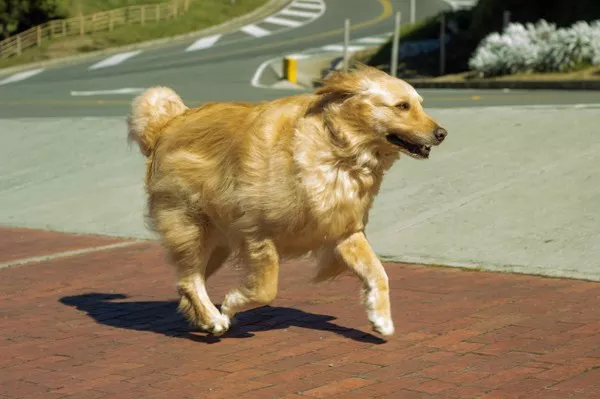Golden Retrievers are one of the most popular dog breeds in the world, and for good reason. They are intelligent, friendly, and eager to please. However, even the best dogs need training in order to be well-behaved and enjoyable companions.
This article will provide you with some tips on how to train your Golden Retriever.
1. Start Early
The best time to start training your Golden Retriever is when they are puppies. Puppies are more impressionable than older dogs, and they are more likely to learn new behaviors quickly.
2. Use Positive Reinforcement
Positive reinforcement is the most effective way to train any dog. This means rewarding your dog for good behavior, and ignoring or correcting bad behavior.
When your dog does something you want them to do, give them a treat, praise them, or pet them. This will help them to associate the good behavior with a positive outcome, and they will be more likely to repeat it.
3. Be Consistent
It is important to be consistent with your training. If you only enforce the rules sometimes, your dog will become confused and may not learn what you want them to do.
4. Make Training Fun
Training should be a fun experience for both you and your dog. If your dog is not having fun, they are less likely to want to participate.
Try to keep training sessions short and upbeat. Use a variety of activities to keep your dog’s attention. And don’t forget to praise and reward your dog frequently.
5. Be Patient
Training takes time and patience. Don’t get discouraged if your dog doesn’t learn something right away. Just keep practicing, and eventually they will get it.
6. Use a Variety of Tools
There are a variety of tools that can be helpful for training dogs. These include clicker training, food rewards, and training collars.
Clicker training is a type of positive reinforcement training that uses a clicking sound to mark desired behaviors. This can be a very effective way to train dogs, especially for complex behaviors.
Food rewards are another effective way to train dogs. When your dog does something you want them to do, give them a small treat. This will help them to associate the good behavior with a positive outcome.
Training collars can be used to help train dogs to obey commands. These collars emit a mild electric shock or a sound when the dog does something wrong. This can be helpful for training dogs that are difficult to control.
7. Socialize Your Dog
Socialization is important for all dogs, but it is especially important for Golden Retrievers. Golden Retrievers are naturally friendly dogs, but they can become shy or aggressive if they are not properly socialized.
Start socializing your Golden Retriever when they are puppies. Take them to different places, introduce them to different people and animals, and let them experience different situations. This will help them to become well-rounded dogs that are comfortable in any situation.
8. Keep Training Up
Even after your Golden Retriever has mastered the basic commands, it is important to continue training them. This will help them to stay sharp and to learn new behaviors.
You can continue training your Golden Retriever by practicing the basic commands, teaching them new tricks, and enrolling them in obedience classes.
9. Be a Good Role Model
Dogs learn by watching their owners. If you want your Golden Retriever to be well-behaved, you need to be a good role model. This means being consistent, being patient, and being positive.
If you are a good role model, your Golden Retriever will be more likely to follow your lead and to be a well-behaved dog.
10. Have Fun!
Training your Golden Retriever should be a fun experience for both you and your dog. If you are having fun, your dog is more likely to have fun too.
So relax, enjoy the process, and be patient. With a little time and effort, you can train your Golden Retriever to be the perfect companion.
Additional Tips
Use a variety of training methods. There is no one right way to train a dog. Experiment with different methods to find what works best for you and your dog.
Be consistent. Dogs learn best when they know what is expected of them. Be consistent with your commands and your expectations.
Be patient. Training a dog takes time and patience. Don’t get discouraged if your dog doesn’t learn something right away. Just keep practicing and eventually they will get it.
Have fun! Training your dog should be a fun experience for both of you. If you are having fun, your dog is more likely to


